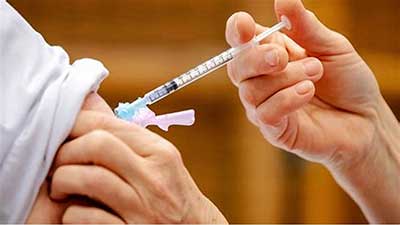GS-3 Awareness in the fields of IT, Space, Computers, Robotics, Nano-technology, Bio-technology and issues relating to Intellectual Property Rights.
Key Phrases: WTO, IP waiver, compulsory licensing
Why in news?
USA bats for IP waiver to fight corona
Analysis:
What are the IP laws currently?
- The 1995 agreement on Trade-Related Aspects of Intellectual Property Rights (TRIPS) requires ratifying countries to adopt a minimum standard of intellectual property rights to protect creators and promote innovation.
- A patent represents a powerful intellectual property right, and is an exclusive monopoly granted by a government to an inventor for a limited, pre-specified time. It provides an enforceable legal right to prevent others from copying the invention.
What’s the current proposal for waiver?
- India and South Africa had asked the WTO to waive certain conditions of the Trade Related Aspects of Intellectual Property Rights (TRIPS) Agreement that could impede timely access to affordable medical products to combat Covid-19.
- If the waiver is granted, WTO member countries will not be under an obligation, for a temporary period, to either grant or enforce patents and other IP-related rights to Covid-19 drugs, vaccines, and other treatments.
- This will immunise the measures adopted by countries to vaccinate their populations from claims of illegality under WTO law.
Why are developing countries asking for waiver?
- Vaccine Cost: Once the formula is shared, any company which possesses the required technology and infrastructure can produce vaccines. This will lead to cheaper and more generic versions of Covid vaccines and will be a big step in overcoming vaccine shortage.
- Inequitable Distribution of Vaccines: This has opened up a glaring gap between developing and wealthier countries now. 80% of total vaccines produced are with developed nations.
- Against the Interests of the World: The longer Covid circulates in developing nations, there is a greater chance of more vaccine-resistant, deadly mutations of the virus emerging.
- Preparation for the Third Wave: Indian authorities have stated that the third wave of the pandemic is inevitable. Once the number of cases and deaths plateau, addressing shortages and making more affordable vaccines readily accessible could be the best way to prepare.
- This move can help scale up production to meet demand besides making the vaccines more affordable for everyone.
Roadblocks to IP waiver
- Earlier pharma companies opposed the proposed waiver saying that eliminating IP protections would undermine global response to the pandemic, including the ongoing efforts to tackle new variants.
- They say that it would not be feasible for a company to move vaccines to a developing nation as these countries do not have the capacity to speedily produce vaccines.
- Also, countries like the US had blocked exports of critical raw materials used in the production of some Covid-19 vaccines using regulations like the American Defence Production Act (DPA).
- Disincentive Pharmaceutical Companies: Lifting of patents would be a huge deterrent to investing heavily on vaccine development during pandemics in the future.
- Vaccine Quality and Safety may get compromised: Lifting of patents would be a compromise on control of safety and quality standards for vaccine manufacturing.
Do these arguments hold valid?
- Argument that these countries do not have the capacity to speedily produce vaccines goes against earlier moves towards a patents regime for generic drugs. India is global pharma shop and exports generics worldwide.
- Western companies are interested in contracting Indian companies for manufacturing their vaccines in India like SII producing for UK - so the capability argument doesn’t hold either.
- Countries backing the IP waiver are not asking for charity, but for the right to develop and make their own vaccines, free from the worry that they will be sued by patent holders.
Way ahead
- Waiving IP protections alone isn't enough to make vaccines available around the world. The countries must work with each other to expand manufacturing capabilities and support international vaccines.
- It’s important for both Indian manufacturers and the government to address concerns of patent holders to make sure that India’s vaccination drive is not compromised in any way.









